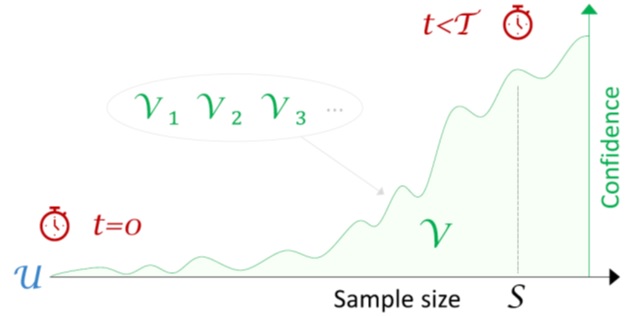Multi-particle interference is a key resource for quantum information processing, as exemplified by Boson Sampling. Hence, given its fragile nature, an essential desideratum is a solid and reliable framework for its validation. However, while several protocols have been introduced to this end, the approach is still fragmented and fails to build a big picture for future developments. In this work, we propose an operational approach to validation that encompasses and strengthens the state of the art for these protocols. To this end, we consider the Bayesian hypothesis testing and the statistical benchmark as most favorable protocols for small- and large-scale applications, respectively. We numerically investigate their operation with finite sample size, extending previous tests to larger dimensions, and against two adversarial algorithms for classical simulation: the mean-field sampler and the metropolized independent sampler. To evidence the actual need for refined validation techniques, we show how the assessment of numerically simulated data depends on the available sample size, as well as on the internal hyper-parameters and other practically relevant constraints. Our analyses provide general insights into the challenge of validation, and can inspire the design of algorithms with a measurable quantum advantage.
Validating multi-photon quantum interference with finite data

